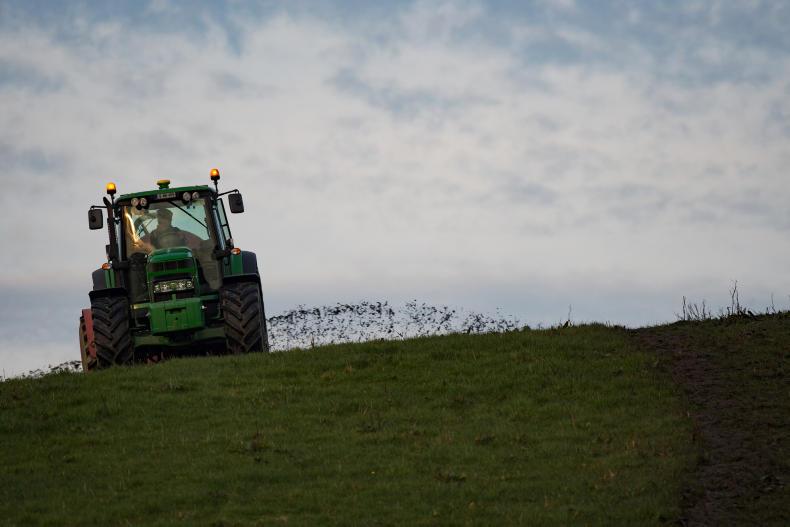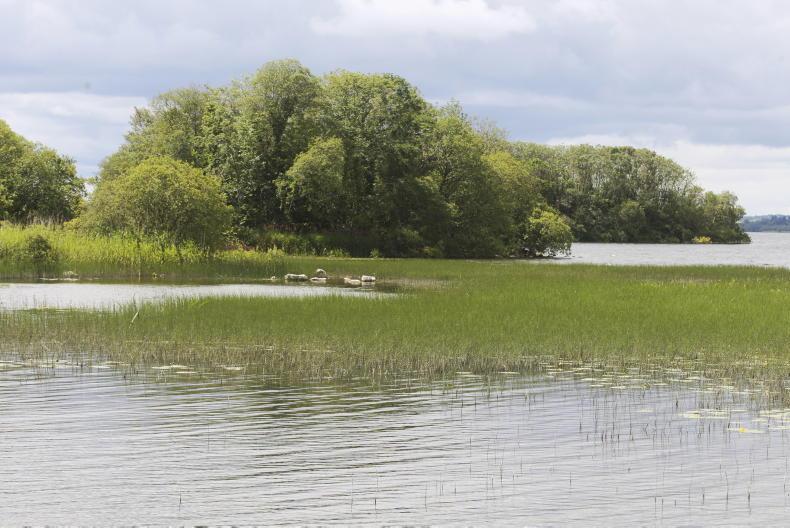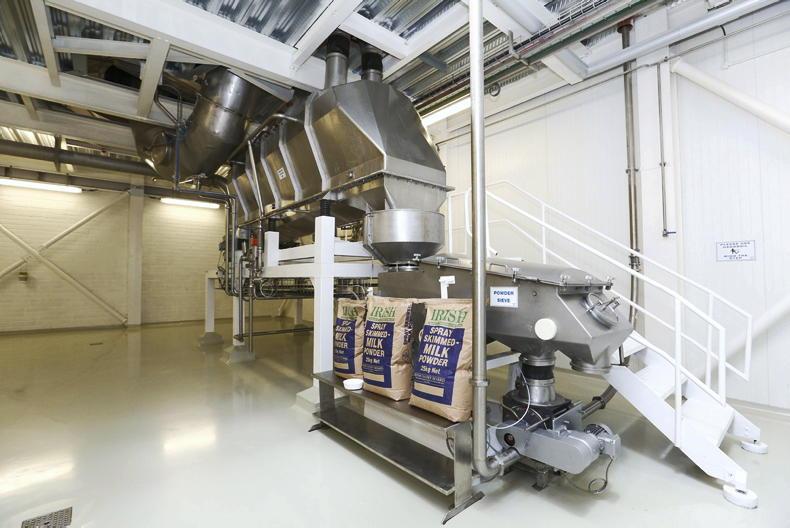There were 31 separate fish kills across the country last year, with eight of those directly attributable to agricultural activities, according to the body.
The eight fish kills caused by agricultural practises in 2016 occurred in Meath (1), Kilkenny (1), Cork (3), Kerry (1), Sligo (1) and Galway (1).
Fish killed in these incidents included brown trout, Atlantic salmon, eel, stone loach and stickleback.
In addition to the agricultural related kills, two fish kills were as a result of municipal works and one by industrial works.
In four instances, the exact cause of the fish kill was difficult to ascertain while 16 incidents of fish kills were as a result of disease and natural causes.
Managing silage operations
As agriculture was the largest identifiable and avoidable attributing factor to fish kills last year, Inland Fisheries Ireland is reminding farmers of the importance of managing their silage operations correctly.
Silage operations are ongoing all summer and silage effluent has the potential to cause devastating pollution in streams and rivers.
Silage effluent is a significant polluting substance, starving fish and invertebrate life of oxygen, resulting in potentially massive fish kills if it enters a watercourse, it said.
With some rivers low during summertime with little dilution capacity, the effect of a small leak can cause huge damage.
Six-point plan
Inland Fisheries Ireland is advising farmers to follow its simple six-point plan to ensure good farmyard management and reduce their risk of polluting:
1. Use round bales as the most environmentally friendly way to store silage.2. If a silage pit is being used, ensure it is properly sealed to prevent leakage from under the slab.3. Carry out slurry spreading in dry weather and never when heavy rain is forecast.4. Never spread slurry close to a watercourse, be aware of the slope of land to the watercourse.5. Do not clean tanks beside any watercourse, stream or a river.6. Do not allow any effluent or washings to enter any rainwater gully.Continued consideration
Dr Greg Forde, Head of Operations at Inland Fisheries Ireland said: “Inland Fisheries Ireland is grateful to the farming community for their continued consideration and vigilance.
“Good farmyard management can help to prevent accidental runs of polluting substances and protect the local environment.
“This will have a significant and lasting positive impact on valuable wild fish populations in an area.”
Inland Fisheries Ireland manages a wide range of environmental issues which can affect the fisheries resource with over 22,000 environmental inspections carried out in 2016 across industrial, forestry, engineering, water treatment and wind farms sites.
There were 1,553 inspections across farmyards to help identify any risks and prevent damage to the local aquatic habitat.
The plethora of agencies that duplicate the water monitoring and evaluation roles must end
IFA environment chair Thomas Cooney highlighted the high level of current investment in more environmentally-friendly farm buildings and equipment and called on Inland Fisheries Ireland and other bodies to collaborate with farmers more directly in preventing water pollution.
“The plethora of agencies that duplicate the water monitoring and evaluation roles must end. Agencies such as the Department of Agriculture, the Department of Local Government, local authorities, the EPA and Inland Fisheries Ireland must work with farmers to develop a better balance between enforcement activities and supporting long-term compliance,” Cooney said in a statement to the Irish Farmers Journal. He called on Inland Fisheries Ireland to publish maps of spawning grounds and ensure that farmers are fully aware of them.
Read more
Dunbia fined €5,000 for water pollution
Question marks over value of closed period
There were 31 separate fish kills across the country last year, with eight of those directly attributable to agricultural activities, according to the body.
The eight fish kills caused by agricultural practises in 2016 occurred in Meath (1), Kilkenny (1), Cork (3), Kerry (1), Sligo (1) and Galway (1).
Fish killed in these incidents included brown trout, Atlantic salmon, eel, stone loach and stickleback.
In addition to the agricultural related kills, two fish kills were as a result of municipal works and one by industrial works.
In four instances, the exact cause of the fish kill was difficult to ascertain while 16 incidents of fish kills were as a result of disease and natural causes.
Managing silage operations
As agriculture was the largest identifiable and avoidable attributing factor to fish kills last year, Inland Fisheries Ireland is reminding farmers of the importance of managing their silage operations correctly.
Silage operations are ongoing all summer and silage effluent has the potential to cause devastating pollution in streams and rivers.
Silage effluent is a significant polluting substance, starving fish and invertebrate life of oxygen, resulting in potentially massive fish kills if it enters a watercourse, it said.
With some rivers low during summertime with little dilution capacity, the effect of a small leak can cause huge damage.
Six-point plan
Inland Fisheries Ireland is advising farmers to follow its simple six-point plan to ensure good farmyard management and reduce their risk of polluting:
1. Use round bales as the most environmentally friendly way to store silage.2. If a silage pit is being used, ensure it is properly sealed to prevent leakage from under the slab.3. Carry out slurry spreading in dry weather and never when heavy rain is forecast.4. Never spread slurry close to a watercourse, be aware of the slope of land to the watercourse.5. Do not clean tanks beside any watercourse, stream or a river.6. Do not allow any effluent or washings to enter any rainwater gully.Continued consideration
Dr Greg Forde, Head of Operations at Inland Fisheries Ireland said: “Inland Fisheries Ireland is grateful to the farming community for their continued consideration and vigilance.
“Good farmyard management can help to prevent accidental runs of polluting substances and protect the local environment.
“This will have a significant and lasting positive impact on valuable wild fish populations in an area.”
Inland Fisheries Ireland manages a wide range of environmental issues which can affect the fisheries resource with over 22,000 environmental inspections carried out in 2016 across industrial, forestry, engineering, water treatment and wind farms sites.
There were 1,553 inspections across farmyards to help identify any risks and prevent damage to the local aquatic habitat.
The plethora of agencies that duplicate the water monitoring and evaluation roles must end
IFA environment chair Thomas Cooney highlighted the high level of current investment in more environmentally-friendly farm buildings and equipment and called on Inland Fisheries Ireland and other bodies to collaborate with farmers more directly in preventing water pollution.
“The plethora of agencies that duplicate the water monitoring and evaluation roles must end. Agencies such as the Department of Agriculture, the Department of Local Government, local authorities, the EPA and Inland Fisheries Ireland must work with farmers to develop a better balance between enforcement activities and supporting long-term compliance,” Cooney said in a statement to the Irish Farmers Journal. He called on Inland Fisheries Ireland to publish maps of spawning grounds and ensure that farmers are fully aware of them.
Read more
Dunbia fined €5,000 for water pollution
Question marks over value of closed period









SHARING OPTIONS